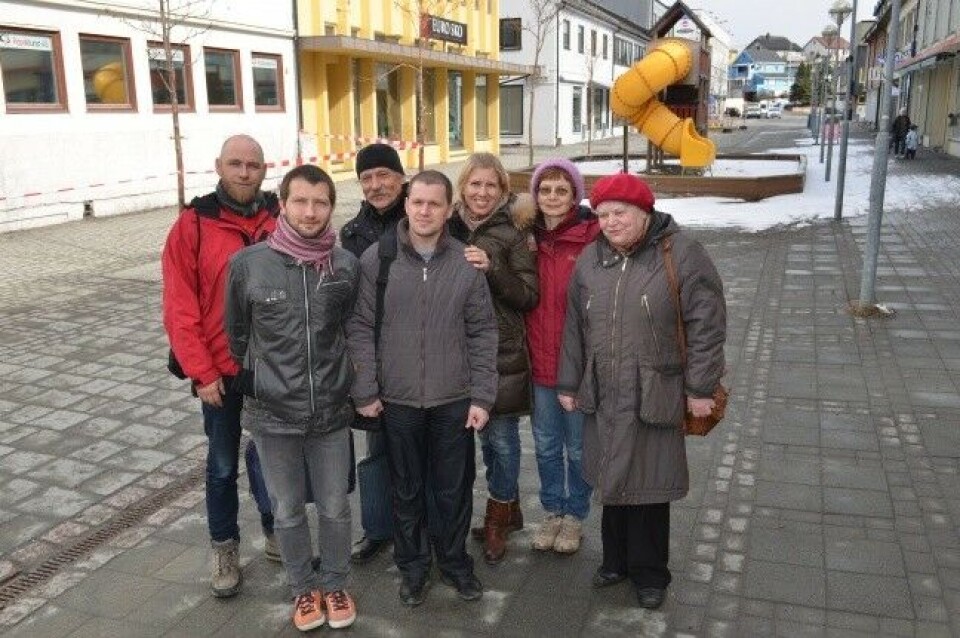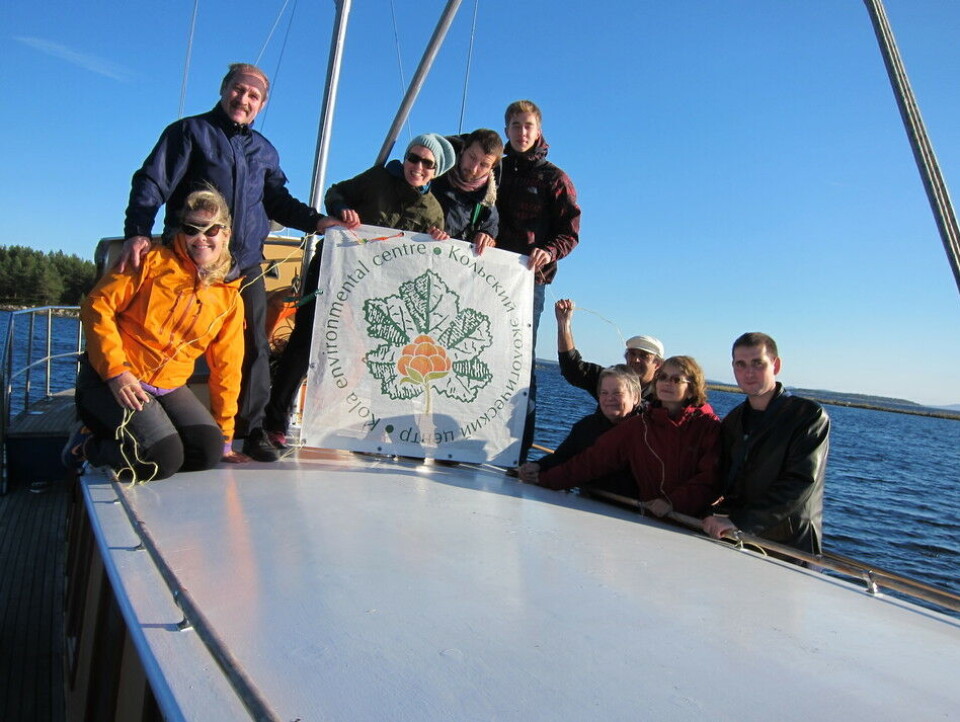
Kola Eco Centre labeled as «foreign agents»
Pressure on Russia’s civil society continues and hardest hit are the environmental organizations.
p.p1 {margin: 0.0px 0.0px 0.0px 0.0px; font: 11.0px Helvetica; color: #000000; -webkit-text-stroke: #000000}p.p2 {margin: 0.0px 0.0px 0.0px 0.0px; font: 11.0px Helvetica; color: #000000; -webkit-text-stroke: #000000; min-height: 13.0px}span.s1 {font-kerning: none}
Kola Eco Center in the town of Apatity is the latest non-governmental organization (NGO) to be stigmatized as «foreign agents» by Russia’s Ministry of Justice.
The ministry argues that cash received from Norway have been used to make «influence on the development and implementation of public policy.» Kola Eco Centre has also made actions «affecting the activities of state bodies.»
Established more than 20 years ago, Kola Eco Center is a regional NGO with mission to protect the citizens rights to a healthy environment. Education work, field excursions in the nature and environmental impact assessments are some of the prioritized areas of work for the group.
Cross-border cooperation with Norwegian environmental groups, like Naturvernforbundet (Friends of the Earth Norway), Nature and Youth and Bellona, has been a natural part of Kola Eco Center’s international focus. And here is the problem; part of the funding has also been provided by the Norwegian partners.
Grants from Norway
Introduced in 2012, Russia’s «foreign agents» law says NGOs involved in political activities getting grants from abroad must brand themselves as «Foreign Agents». Such stigmatizing often silence the organizations that are placed on the Justice Ministry’s list.
The ministry says Kola Eco Centre got funding from a «Norwegian Public Charity Organization.»
In 2015, Naturvernforbundet in Norway got 500,000 kroner for project cooperation with Kola Eco Centre, the portal of the Barents Secretariat reads.
Kjersti Album with Naturvernforbundet in Oslo says to the Barents Observer that their cooperation with the environmental group on the Kola Peninsula also got grants from the Ministry of Environment and Norway’s Action Plan for Nuclear Safety with Russia. All three grant providers’ money are distributed through the Ministry of Foreign Affairs budget for cooperation with Russia.

«It is not directly surprising that Kola Eco Center has been stamped as foreign agents, although it is obviously sad,» says Kjersti Album. She tells that Naturvernforbundet has work to adopt the cooperation so that the «foreign agent» branding won’t stop the work. «We hope and believe that our projects can continue, albeit in a slightly different form than before.»
Vitaly Servetnik, co-chair of Russian Social-Ecological Union (Friends of the Earth Russia), says there are many environmental groups on the «foreign agent» list. «Of the 29 environmental groups [on the list] only four managed to get our of the register and 13 have decided to shut down,» he tells.
«The law itself was intended to weaken civil society organizations and came after the political opposition protests in 2011-2012. The law works well., Servetnik explains. The most active and effective NGO were labelled, fined paralyzed and some even shut down. Others are adopting their work. Self-censorship is playing a big poisoning role as well.»
Chilling effect
Kjersti Album says the Russian agent law makes environmental cooperation between the countries harder.
«We see that both former and potential new partners refuse to have contact with environmental organizations that are stamped as foreign agents. Also, environmentalists are increasingly spending their time on formal reporting and inspections by authorities, time which should have been spent on environmental protection work,» Album explains.
Including Kola Eco Centre, a totalt of 160 NGOs are today listed as «foreign agents» in Russia.
Director Sergei Nikitin with Amnesty International in Moscow says it is pretty clear that the main aim of the Russian authorities has been to stifle the growth of a critical engaged civil society and replace it with docile, dement supporters of government policy.
“The foreign agents law was designed to shackle, stigmatize, and ultimately silence critical NGOs. It has caught a wide range of NGOs in its net and come at considerable cost to individual rights and the quality of civic discussion in Russia. The ultimate losers are not just NGOs but Russian society,” Nikitin says.
Ten in Barents Russia
In Barents Russia, there are now ten NGOs labelled as «foreign agents». In Murmansk region, that includes the LGBT-friendly Maximum, the environmental group Bellona Murmansk, the Humanist Youth Movement and Kola Eco Centre. In Arkhangelsk region it is the LGBT-friendly Rakurs organization and in Karelia the youth group Nuori Karjala and the Petrozavodsk-based Northern Environmental Coalition. Another Karelian organization listed is the Association of Legal Expertise Partnership Union. On the tundra in Nenets Autonomous Okrug, the indigenous peoples group Yasavey Manzara is declared «foreign agents.» In the Komi Republic, Memorial Commission on protection of Human Rights is listed.
p.p1 {margin: 0.0px 0.0px 0.0px 0.0px; font: 11.0px Helvetica; color: #000000; -webkit-text-stroke: #000000}span.s1 {font-kerning: none}
Other well-known groups in Russia are Memorial, Committee Against Torture, Transparency International-Russia, Nordic Council of Ministers’ office in St. Petersburg, Golos Association, Levada Centre, Dynasty Foundation, Bellona St. Petersburg, Regional Press Institute, the Freedom of Information Foundation and Moscow School of Civil Education.
Soldiers’ Mothers is an organization that has managed to be removed from the list.
You can help us…
…. we hope you enjoyed reading this article. Unlike many others, the Barents Observer has no paywall. We want to keep our journalism open to everyone, including to our Russian readers. The Independent Barents Observer is a journalist-owned newspaper. It takes a lot of hard work and money to produce. But, we strongly believe our bilingual reporting makes a difference in the north. We therefore got a small favor to ask; make a contribution to our work.
















